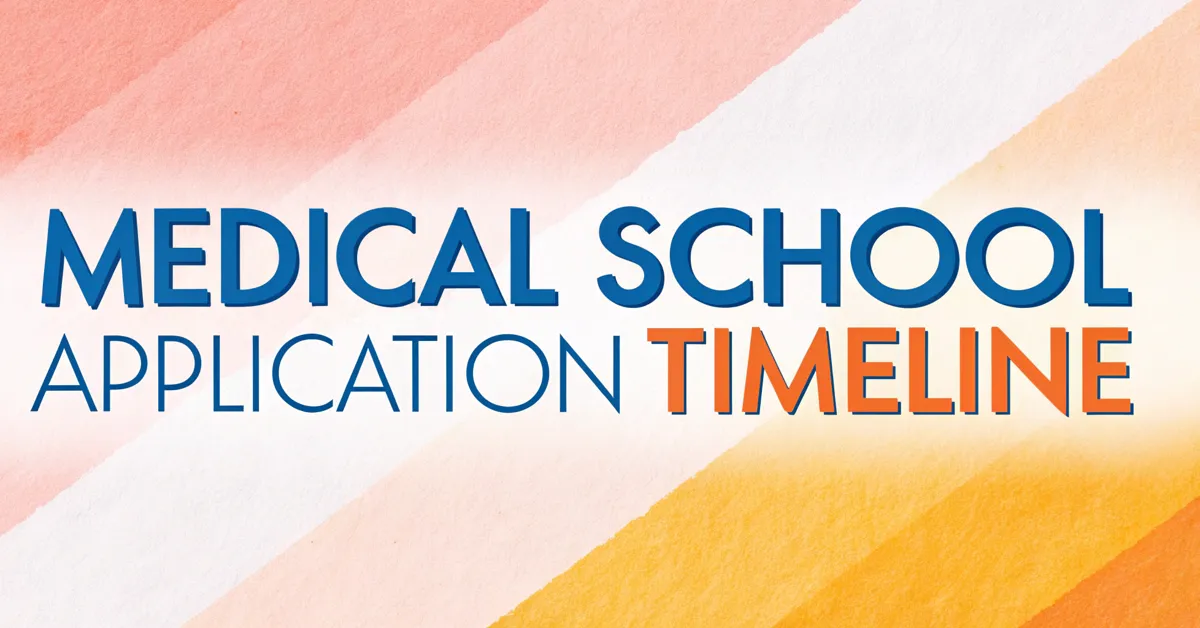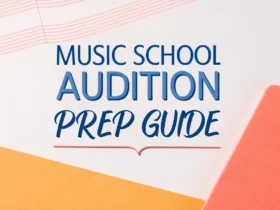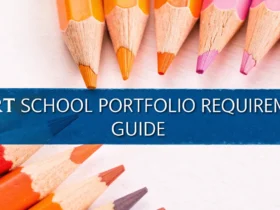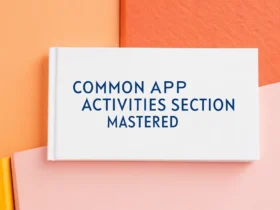The white coat. It’s more than just apparel; it’s a symbol. A symbol of knowledge, compassion, and years of dedication. The path to earning that coat is a challenging one, paved with rigorous coursework, demanding exams, and a highly competitive application process. It’s not just about intellect; it’s about timing, strategy, and presenting your best self.
Applying to med school can feel like navigating a complex maze. One wrong turn, and you might find yourself off course. But with careful planning, a solid timeline, and a bit of savvy, you can increase your chances of success.
This article serves as your guide, breaking down the med school application process into manageable steps, providing a clear timeline, and offering insider tips to help you stay on track. We’ll cover everything from pre-application preparation to post-submission strategies, so you can approach the process with confidence. Let’s embark on this journey together.
The Pre-Application Phase: Laying the Foundation
Before you even think about filling out an application, you need to build a strong foundation. This involves academic preparation, gaining relevant experiences, and developing essential skills. Think of it as crafting the perfect blueprint before constructing a building.
Academic Excellence: Grades and Coursework
Your academic record is a primary indicator of your ability to handle the rigorous curriculum of med school. Aim for a high GPA, particularly in science courses. Med schools want to see that you can excel in challenging subjects.
- GPA Expectations: While specific GPA requirements vary by school, most competitive programs look for a GPA of 3.5 or higher. Some even have average GPAs closer to 3.7 or 3.8.
- Coursework Requirements: Ensure you complete the necessary prerequisite courses. These typically include biology, general chemistry, organic chemistry, physics, and mathematics. Check the specific requirements of each school you’re interested in, as they can differ slightly.
- Beyond the Basics: Consider taking additional upper-level science courses like biochemistry, genetics, and cell biology. These courses can demonstrate your commitment to science and prepare you for the material covered in med school.
The MCAT: Your Standardized Test Score
The Medical College Admission Test (MCAT) is a standardized, multiple-choice exam designed to assess your problem-solving, critical thinking, and knowledge of scientific principles. It’s a critical component of your application.
- MCAT Timing: Aim to take the MCAT in the spring or early summer of the year you plan to apply. This allows you time to retake the exam if needed and still meet application deadlines.
- MCAT Preparation: Dedicate ample time to studying for the MCAT. Utilize resources like practice tests, review books, and prep courses. The AAMC (Association of American Medical Colleges) offers official MCAT practice materials, which are highly recommended.
- MCAT Scoring: The MCAT is scored out of 528, with an average score of around 500. Competitive applicants typically score 510 or higher. Research the average MCAT scores for the schools you’re targeting to gauge your competitiveness.
Extracurricular Activities: Demonstrating Your Passion and Skills
Med schools seek well-rounded individuals with a genuine passion for medicine. Your extracurricular activities provide an opportunity to showcase your interests, skills, and commitment to serving others.
- Clinical Experience: Shadowing physicians, volunteering in hospitals, or working as an EMT or medical assistant provides valuable exposure to the healthcare environment. Aim for a diverse range of clinical experiences to gain a comprehensive understanding of different medical specialties and patient populations.
- Research Experience: Participating in research projects demonstrates your scientific curiosity, analytical skills, and ability to contribute to the advancement of medical knowledge. Look for research opportunities in university labs, hospitals, or research institutions.
- Volunteering: Engaging in volunteer activities, particularly those focused on healthcare or community service, demonstrates your compassion, empathy, and commitment to helping others. Consider volunteering at homeless shelters, food banks, or organizations that provide healthcare services to underserved populations.
- Leadership Roles: Taking on leadership roles in extracurricular activities demonstrates your ability to lead, motivate, and work effectively with others. Consider serving as a club officer, team captain, or project leader.
Developing Essential Skills: Communication, Empathy, and Critical Thinking
Med school requires more than just academic prowess. It demands strong communication skills, empathy, and critical thinking abilities. These skills are essential for building rapport with patients, collaborating with colleagues, and making sound clinical decisions.
- Communication Skills: Practice your communication skills through public speaking, writing, and active listening. Participate in debates, join a toastmasters club, or volunteer as a tutor to hone your communication abilities.
- Empathy: Develop your empathy by actively listening to others, trying to understand their perspectives, and showing compassion for their experiences. Volunteer in settings where you can interact with people from diverse backgrounds and with varying needs.
- Critical Thinking: Sharpen your critical thinking skills by analyzing information, evaluating arguments, and solving complex problems. Participate in debate clubs, logic puzzles, or research projects to develop your analytical abilities.
The Application Timeline: A Step-by-Step Guide
The med school application process follows a fairly standardized timeline. Staying on schedule is crucial for maximizing your chances of acceptance. Here’s a breakdown of the key milestones:
Spring/Summer Before Application Year: Preparation and MCAT
- Research Schools: Begin researching med schools that align with your interests, academic profile, and career goals. Consider factors like location, curriculum, research opportunities, and mission.
- MCAT Preparation: Dedicate significant time to studying for the MCAT. Develop a study plan, utilize practice tests, and seek help from tutors or prep courses if needed.
- Request Transcripts: Request official transcripts from all undergraduate and graduate institutions you’ve attended. Allow ample time for processing and delivery.
- Secure Letters of Recommendation: Identify potential recommenders and request letters of recommendation. Provide them with your resume, personal statement draft, and any other relevant information to help them write strong letters.
May/June: Primary Application Submission
- AMCAS, AACOMAS, or TMDSAS Application Opens: The primary application services for MD (AMCAS), DO (AACOMAS), and Texas (TMDSAS) programs typically open in May.
- Complete Primary Application: Fill out the primary application with accurate and detailed information. This includes your personal information, academic history, extracurricular activities, and personal essay.
- Submit Primary Application: Submit your primary application as early as possible, ideally in May or June. This gives you a head start in the application process and demonstrates your enthusiasm to schools.
July/August: Secondary Applications
- Receive Secondary Applications: Once your primary application is verified, you’ll start receiving secondary applications from individual med schools.
- Complete Secondary Applications: Each secondary application requires you to answer school-specific essay questions. Tailor your responses to each school’s unique mission, values, and programs.
- Submit Secondary Applications: Submit your secondary applications promptly, ideally within two weeks of receiving them.
September/October: Interview Invitations
- Receive Interview Invitations: Med schools will begin sending out interview invitations to candidates they wish to learn more about.
- Prepare for Interviews: Practice your interviewing skills by conducting mock interviews and researching common interview questions.
November/December: Interviews
- Attend Interviews: Attend your med school interviews and showcase your personality, experiences, and passion for medicine.
January/February: Post-Interview Period
- Send Thank You Notes: Send thank you notes to your interviewers to express your appreciation for their time and consideration.
- Update Schools: If you have any significant updates to your application, such as new experiences or awards, inform the schools to which you’ve applied.
March/April: Acceptance Offers
- Receive Acceptance Offers: Med schools will begin sending out acceptance offers to candidates they wish to admit.
- Make Your Decision: Carefully consider your acceptance offers and choose the school that best fits your needs and goals.
May: Commitment Deadline
- Commit to a School: Most med schools require you to commit to a school by May.
Crafting a Compelling Application: Showcasing Your Strengths
Your application is your opportunity to tell your story and demonstrate why you’re a strong candidate for med school. It’s important to present yourself authentically and highlight your strengths.
The Personal Statement: Telling Your Story
The personal statement is a crucial component of your application. It’s your chance to showcase your personality, motivations, and experiences in a compelling narrative.
- Authenticity: Be genuine and authentic in your writing. Share your unique experiences and perspectives.
- Narrative Structure: Craft a narrative structure that engages the reader and showcases your personal growth. Start with an attention-grabbing hook and develop your story with vivid details.
- Highlight Your Strengths: Emphasize your strengths and accomplishments, but also acknowledge your challenges and how you’ve overcome them.
- Connect to Medicine: Clearly articulate your motivations for pursuing a career in medicine and how your experiences have shaped your passion.
- Show, Don’t Tell: Use vivid language and specific examples to illustrate your points. Instead of simply stating that you’re compassionate, describe an experience where you demonstrated compassion.
- Seek Feedback: Get feedback on your personal statement from trusted mentors, advisors, and friends. Revise and refine your statement based on their suggestions.
Secondary Essays: Demonstrating Your Fit
Secondary essays are school-specific essays that allow med schools to assess your fit with their unique mission, values, and programs.
- Research the School: Thoroughly research each school to understand its unique characteristics and programs.
- Tailor Your Responses: Tailor your responses to each school’s specific essay prompts and demonstrate how your experiences and goals align with their mission.
- Highlight Your Fit: Articulate why you’re particularly interested in attending that specific school and how you would contribute to their community.
- Address Weaknesses: If there are any weaknesses in your application, such as a low GPA or MCAT score, address them head-on and explain how you’ve worked to improve.
- Show, Don’t Tell: Use specific examples and anecdotes to illustrate your points and demonstrate your fit with the school.
- Proofread Carefully: Proofread your essays carefully for any errors in grammar, spelling, or punctuation.
Letters of Recommendation: Gaining Endorsements
Letters of recommendation provide valuable insights into your character, skills, and potential as a medical student. Choose recommenders who know you well and can speak to your strengths.
- Choose Wisely: Select recommenders who know you well and can write compelling letters on your behalf. Aim for a mix of science faculty, physicians, and mentors who can speak to your academic abilities, clinical skills, and personal qualities.
- Provide Information: Provide your recommenders with your resume, personal statement draft, and any other relevant information to help them write strong letters.
- Give Ample Time: Request letters of recommendation well in advance of the application deadline to give your recommenders ample time to write thoughtful and personalized letters.
- Waive Your Right to View: Waive your right to view the letters of recommendation to ensure that your recommenders feel comfortable writing honest and candid assessments.
- Express Gratitude: Express your gratitude to your recommenders for their time and effort in writing letters on your behalf.
Interview Strategies: Making a Lasting Impression
The med school interview is your opportunity to shine in person and demonstrate your personality, communication skills, and passion for medicine.
Types of Interviews
- Traditional Interviews: Traditional interviews involve one-on-one or panel interviews with faculty members, physicians, or admissions committee members.
- Multiple Mini Interviews (MMIs): MMIs involve a series of short, structured interviews with different interviewers, each assessing a specific skill or quality.
- Group Interviews: Group interviews involve a group of applicants interacting with each other and the interviewers in a discussion-based format.
Preparation Tips
- Research the School: Thoroughly research the school to understand its mission, values, and programs.
- Practice Common Questions: Practice answering common interview questions, such as “Why do you want to be a doctor?” and “Tell me about yourself.”
- Prepare Questions to Ask: Prepare thoughtful questions to ask your interviewers to demonstrate your interest in the school and your engagement in the conversation.
- Dress Professionally: Dress professionally in a suit or business attire.
- Be Yourself: Be genuine and authentic in your interactions. Let your personality shine through and demonstrate your passion for medicine.
During the Interview
- Make Eye Contact: Maintain eye contact with your interviewers to demonstrate your engagement and attentiveness.
- Listen Attentively: Listen attentively to the questions and take a moment to think before responding.
- Speak Clearly and Concisely: Speak clearly and concisely, using proper grammar and avoiding slang or jargon.
- Show Enthusiasm: Show enthusiasm for medicine and for the school you’re interviewing at.
- Be Respectful: Be respectful of your interviewers and their opinions, even if you disagree with them.
- Ask Thoughtful Questions: Ask thoughtful questions that demonstrate your interest in the school and your engagement in the conversation.
Post-Interview
- Send Thank You Notes: Send thank you notes to your interviewers to express your appreciation for their time and consideration.
- Reflect on Your Performance: Reflect on your performance in the interview and identify areas for improvement.
What to Do After Submission: Staying Engaged
The application process doesn’t end after you submit your application. It’s important to stay engaged and demonstrate your continued interest in the schools to which you’ve applied.
Sending Updates
- Significant Updates: If you have any significant updates to your application, such as new experiences, awards, or publications, inform the schools to which you’ve applied.
- Demonstrate Continued Interest: Use your updates to demonstrate your continued interest in the school and how your experiences align with their mission.
Addressing Weaknesses
- Acknowledge Weaknesses: If there are any weaknesses in your application, address them head-on and explain how you’ve worked to improve.
- Highlight Growth: Emphasize how you’ve learned from your challenges and grown as a person.
The Wait: Remaining Patient
- Acceptance Offers: Med schools will begin sending out acceptance offers to candidates they wish to admit.
- Patience is Key: The wait for acceptance offers can be long and stressful. Remain patient and focus on your other activities.
- Consider Backup Plans: Consider backup plans in case you don’t receive the acceptance offers you’re hoping for.
Choosing the Right School: Making an Informed Decision
Receiving acceptance offers is a great accomplishment, but it also presents a new challenge: choosing the right school.
Factors to Consider
- Location: Consider the location of the school and whether it aligns with your personal preferences and professional goals.
- Curriculum: Evaluate the school’s curriculum and whether it meets your academic needs and interests.
- Research Opportunities: Assess the research opportunities available at the school and whether they align with your research interests.
- Clinical Rotations: Investigate the clinical rotation sites affiliated with the school and whether they offer diverse and high-quality training experiences.
- Faculty: Research the faculty members at the school and whether they are experts in their fields and committed to teaching.
- Culture: Visit the school and interact with current students to get a sense of the school’s culture and community.
- Cost: Consider the cost of tuition, fees, and living expenses and whether you can afford to attend the school.
Making Your Decision
- Visit Schools: If possible, visit the schools to which you’ve been accepted to get a firsthand impression of their facilities, faculty, and students.
- Talk to Current Students: Talk to current students to get their perspectives on the school and its programs.
- Seek Advice: Seek advice from mentors, advisors, and family members to help you make an informed decision.
- Trust Your Gut: Ultimately, trust your gut and choose the school that feels like the best fit for you.
Final Thoughts: Persistence Pays Off
The med school application process is undoubtedly a marathon, not a sprint. It demands careful planning, unwavering dedication, and the ability to adapt to unforeseen challenges. There will be times of doubt, moments of frustration, and perhaps even setbacks along the way. But remember, persistence is key.
Many successful medical students faced rejections, overcame academic hurdles, and navigated personal challenges. What set them apart was their unwavering commitment to their goals and their willingness to learn from their experiences.
Don’t be discouraged by setbacks. Instead, view them as opportunities for growth and resilience. Seek support from mentors, advisors, and peers. Remember why you embarked on this journey in the first place, and let your passion for medicine fuel your determination.
The white coat awaits, not just as a symbol of achievement, but as a testament to your perseverance, compassion, and dedication to serving others. Embrace the challenge, stay focused on your goals, and believe in your ability to succeed. Your journey to medical school is a testament to your resolve and your unwavering desire to make a difference in the lives of others.















Leave a Reply
View Comments